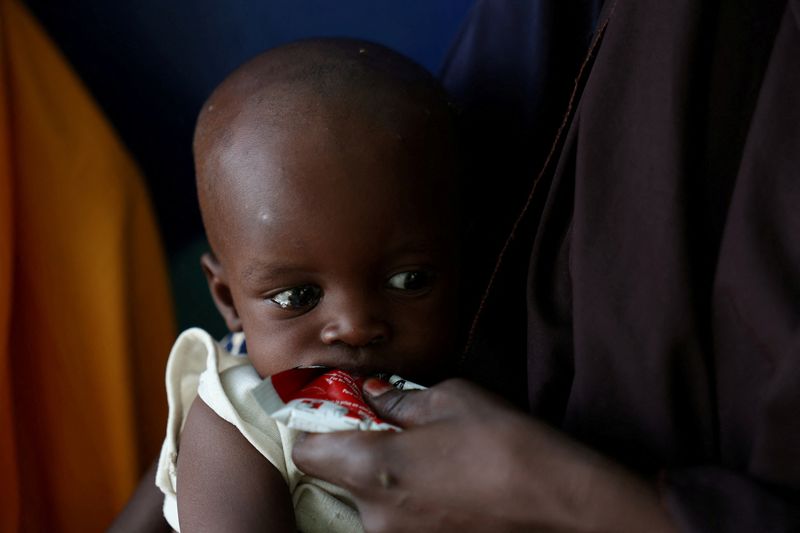By Marcelo Teixeira
DES MOINES, Iowa (Reuters) -International food aid must double to meet the needs of about 2 billion people worldwide who struggle to get enough to eat, winners of an annual prize recognizing contributions to reducing global hunger said on Wednesday.
The World Food Prize was started in 1986 by Nobel Peace Prize winner Norman Borlaug, a U.S. agronomist whose work with high-yield crops in the 1960s has been credited with saving 1 billion lives.
A group of 28 prize winners, including Brazilian microbiologist Mariangela Hungria who received the award this year, issued the call on Wednesday during the Norman Borlaug Dialogue, an annual conference in Des Moines, Iowa.
The U.N. World Food Program recently reported global food aid was cut by 40% in 2025. The United States, previously a top donor, slashed aid under President Donald Trump, and other governments such as the United Kingdom and France also reduced assistance.
WFP cut aid in Democratic Republic of Congo by 75% and halved a hot meal program in Haiti due to lack of funds, WFP Assistant Executive Director Valerie Guarnieri said during the conference.
“Donors are slashing their donations, for a variety of reasons,” she said. “There will be lives that will be lost, and global instability will increase.”
David Beckmann, the 2010 prize winner and former president of nongovernmental organization Bread for the World, said famine was a problem in Sudan, Yemen, Gaza and Haiti, among other places.
“When the need for help increased, the money was not there,” he said.
Chef Jose Andres, founder of the nonprofit World Central Kitchen, has not won the World Food Prize, but he joined the appeal.
“Immigration is increasing and will keep increasing. The main reason people leave their countries is hunger,” he told reporters.
The World Food Prize honors work in fields like nutrition, environmental conservation, policy advocacy, rural development and plant and soil science.
(Reporting by Marcelo Teixeira; Editing by Cynthia Osterman)

